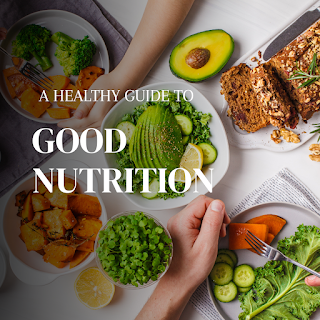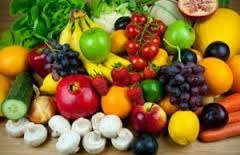In our fast-paced lives, maintaining a healthy lifestyle can sometimes feel like a daunting task. However, with a little bit of organization and planning, you can take charge of your nutrition and make healthy eating a seamless part of your routine. In this blog post, we'll delve into the art of basic meal and menu planning, equipping you with practical tips and strategies to nourish your body and support your well-being.
1. Assess Your Goals and Dietary Needs:
Before embarking on your meal planning journey, it's important to assess your goals and dietary needs. Are you looking to lose weight, gain muscle, or simply maintain a balanced lifestyle? Consider any dietary restrictions or allergies as well. Understanding your unique requirements will help you tailor your meal plan accordingly.
2. Create a Weekly Meal Planning Routine:
Set aside a specific day each week to plan your meals and create a menu. Take into account your schedule, including work, school, and other commitments. Identify the number of meals you'll need to prepare and whether you prefer cooking fresh each day or preparing meals in advance.
3. Prioritize Balanced Nutrition:
Aim to include a variety of nutrient-dense foods in your meals to ensure a well-rounded diet. Incorporate lean proteins, whole grains, colorful fruits and vegetables, and healthy fats into your menu. Experiment with new recipes and flavors to keep things exciting and prevent monotony.
4. Make a Grocery List:
Once you've planned your meals for the week, create a detailed grocery list. Stick to the perimeter of the grocery store, where fresh produce, lean proteins, and whole grains are usually found. Avoid impulse buying by staying focused on the items you need to support your meal plan.
5. Prep and Batch Cook
To save time during the week, consider meal prepping and batch cooking. Chop vegetables, marinate proteins, and cook grains in advance. Portion out meals into containers for easy grab-and-go options. This will help you stay on track and resist the temptation of unhealthy convenience foods.
6. Stay Flexible and Allow for Variety
While planning is essential, remember to leave room for flexibility and variety in your meals. Incorporate seasonal ingredients, try new recipes, and allow for occasional indulgences. Enjoying a wide range of flavors and textures will make healthy eating a pleasurable and sustainable experience.
7. Listen to Your Body
Pay attention to your body's hunger and fullness cues. Don't feel compelled to strictly adhere to your meal plan if your appetite or preferences change. Be mindful of portion sizes and practice intuitive eating, honoring your body's signals for nourishment.
Conclusion
Mastering basic meal and menu planning is a powerful tool for maintaining a healthy lifestyle. By investing a little time and effort into organizing your meals, you can establish a foundation for nourishing your body with wholesome foods. Remember, consistency is key, and small steps toward healthier choices can lead to significant long-term benefits. So, embrace the art of planning, explore new flavors, and savor the joys of a balanced and nutritious life.
Note: Consult with a registered dietitian, nutrition coach or healthcare professional for personalized guidance based on your specific dietary needs and health conditions.

.png)

.png)

.png)
.png)
.png)